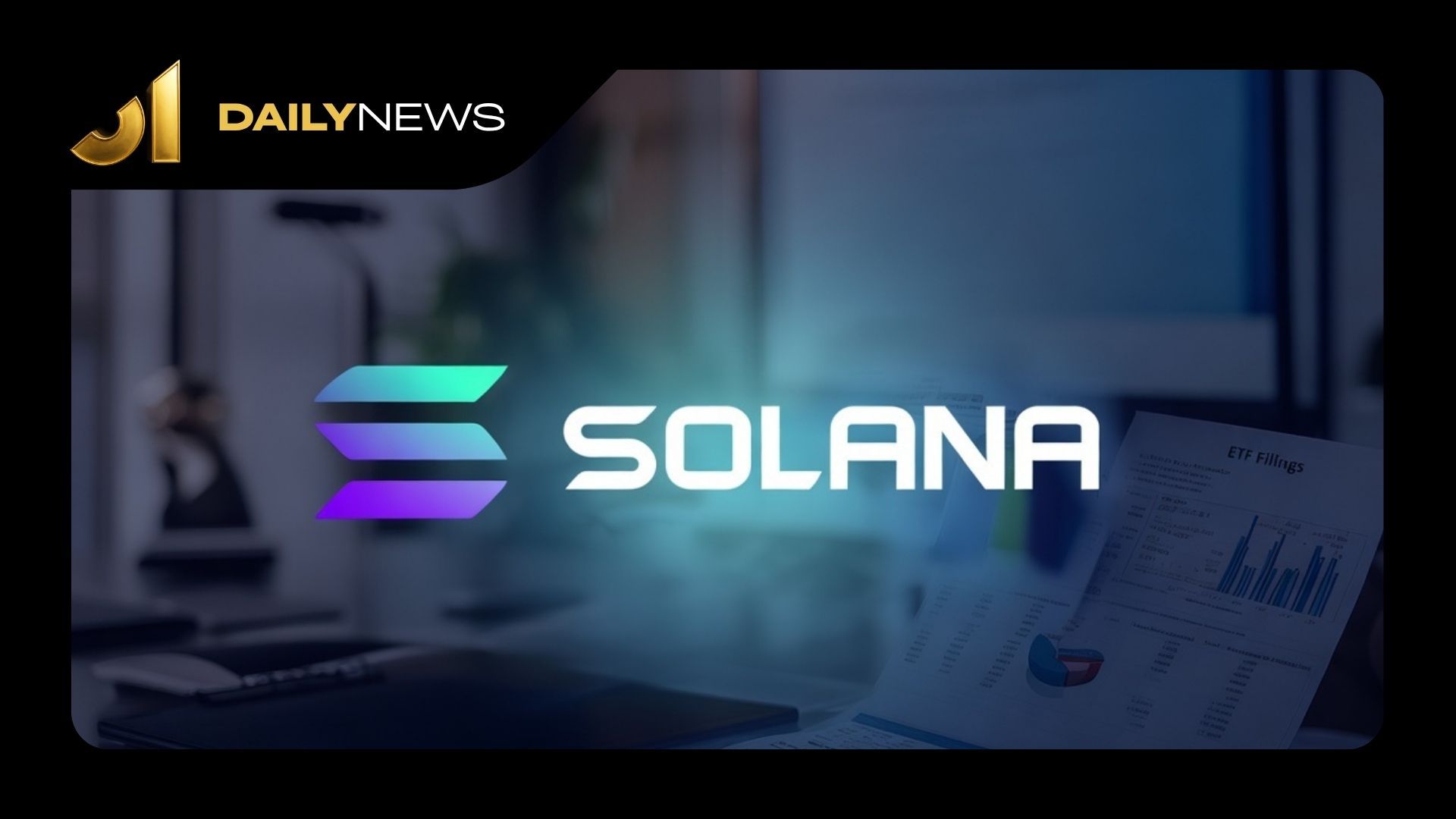SEC Faces Scrutiny Over Gensler’s Deleted Texts as Solana ETFs Could Gain Approval Within Days
Gary Gensler Text Deletion Sparks Lawmaker Scrutiny, Solana ETFs Poised for SEC Approval, Tether Projected to Surpass Saudi Aramco, Brian Quintenz Withdraws From CFTC Chair Consideration

Because Bitcoin
September 30, 2025
Lawmakers Target Gary Gensler Over Lost Year of Texts Tied to Crypto Enforcement Actions
Former SEC Chair Gary Gensler is under congressional scrutiny after nearly a year of his government text messages — from October 2022 to September 2023 — were deleted due to an automated device wipe by the SEC’s tech office. The Office of Inspector General said the policy was poorly understood and led to an “enterprise wipe” of Gensler’s phone.
Republican lawmakers French Hill, Dan Meuser, Bryan Steil, and Ann Wagner sent a letter to current SEC Chair Paul Atkins expressing concern over the missing communications. The period overlaps with the SEC’s high-profile actions against Coinbase and Binance, and Coinbase has asked a federal court to force a search for the deleted messages.
Lawmakers also cited Gensler’s previous use of personal email for official business during his time at the CFTC. They say the incidents raise serious concerns about compliance with federal recordkeeping laws, transparency, and agency oversight.
Bitwise CIO Says Tether Could Outgrow Saudi Aramco and Become Most Profitable Company Ever
Bitwise CIO Matt Hougan says Tether’s current trajectory could make it the most successful company in history. Its business model — fueled by high interest rates and nonstop asset accumulation — could generate more revenue than Saudi Aramco if Tether reaches $3 trillion in assets, roughly 3% of the global money supply.
Tether has floated a $500 billion valuation, putting it in the same league as SpaceX and OpenAI. It currently serves over 400 million users and adds around 35 million new wallets every quarter, especially in emerging economies where stablecoins are used as dollar substitutes.
The company holds $127 billion in U.S. Treasuries and over 100,000 BTC worth about $11.4 billion. Despite having fewer than 200 employees, it reportedly made $13 billion in profit in 2024. Beyond stablecoins, Tether is branching into Bitcoin mining, AI, telecom, energy infrastructure, and data centers.
Hougan argues this reflects crypto’s broader potential. Bitcoin’s $2.3 trillion market cap is still just a fraction of gold’s $25 trillion. Ethereum and Solana are chasing financial and payments markets worth hundreds of trillions. He says investors should think of crypto like venture capital — risky but with the potential to back companies larger than traditional tech giants.
Sources Say Solana ETFs Could Be Approved Within Days, but Government Shutdown Threatens Timeline
ETF issuers are gearing up for potential SEC approval of spot Solana ETFs as early as next week, according to multiple sources speaking to Blockworks. The optimism follows the SEC’s adoption of generic listing standards for crypto ETPs and a wave of amended S-1 filings for Solana funds. One source said they have “high conviction” the S-1s will go effective in the first half of October.
However, a possible U.S. government shutdown — which could begin at midnight — may halt all progress. Two sources said an approval pause during a shutdown is likely.
If approved, Solana would become the third crypto asset with a spot ETF after bitcoin and ether. Its $113 billion market cap puts it well behind BTC and ETH, but ahead of most other tokens.
The SEC has asked filers to withdraw their 19b-4 forms due to the new generic listing standards, which remove the need for individual rule changes. This could accelerate approvals for Solana as well as other assets like XRP and litecoin.
Bloomberg ETF analyst Eric Balchunas says the odds of new crypto ETF approvals are now “really 100%,” adding that with the new standards, approvals could land any day.
Brian Quintenz Dropped From CFTC Chair Consideration Amid Conflict Concerns
Brian Quintenz, former CFTC commissioner and current policy lead at a16z, is no longer in the running to head the Commodity Futures Trading Commission. His expected nomination collapsed over concerns about conflicts of interest tied to a16z’s lobbying efforts and objections from key industry figures.
Quintenz had been the administration’s intended pick earlier this year, but his confirmation stalled after multiple canceled committee votes. He said he’s honored to have been considered and will return to the private sector.
The leading replacement candidate is Mike Selig, currently chief counsel to the SEC’s crypto task force and senior advisor to the chair. Others being evaluated include Josh Sterling, Isabelle Corbette Sterling and former CFTC Commissioner Jill Sommers. The CFTC is expected to play a major role in the future regulatory framework for digital assets.

